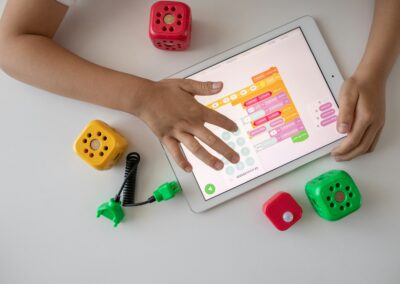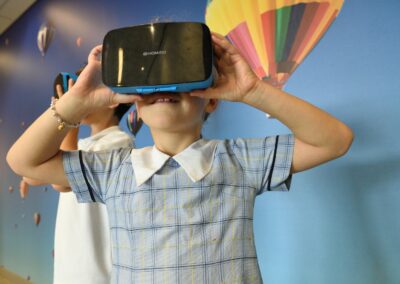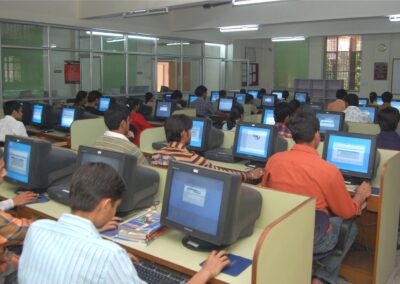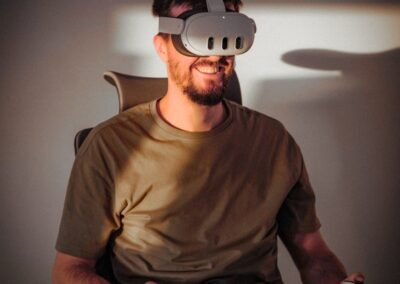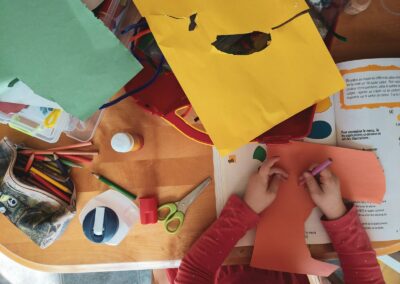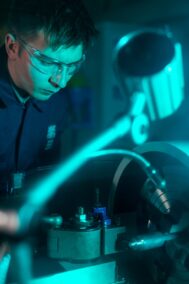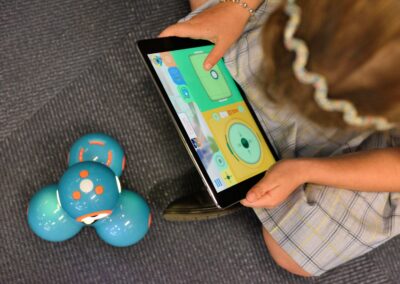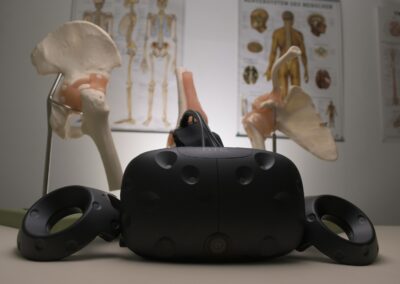The Future of Learning with Virtual Labs
The Importance of Precision in Virtual Labs
Accurate and reliable virtual labs are essential for providing high-quality educational experiences that closely simulate real-world experiments and processes. In today’s rapidly advancing technological landscape, virtual labs offer a flexible and accessible alternative to traditional physical laboratories. This innovation is particularly significant in regions like Saudi Arabia and the UAE, where educational institutions are leveraging modern technology to enhance learning outcomes.
Virtual labs enable students to perform experiments and engage in interactive simulations that mimic real-world scenarios. To ensure these labs are effective, they must be designed with a high degree of precision and reliability. This involves using advanced algorithms, real-time data processing, and sophisticated modeling techniques to create environments that accurately represent the complexities of physical experiments.
Educators play a crucial role in validating the accuracy of virtual labs. By collaborating with technology developers and conducting thorough testing, they can identify potential inaccuracies and make necessary adjustments. This collaborative approach ensures that virtual labs provide students with a realistic and reliable learning experience, fostering a deeper understanding of scientific concepts and processes.
Leveraging Artificial Intelligence for Enhanced Simulations
Artificial Intelligence (AI) has the potential to revolutionize the accuracy and reliability of virtual labs. AI-driven tools and applications can enhance the precision of simulations by analyzing vast amounts of data and predicting outcomes with a high degree of accuracy. For example, AI can be used to model complex chemical reactions, predict physical properties, and simulate biological processes in a way that closely mirrors real-world phenomena.
Moreover, AI can facilitate adaptive learning in virtual labs. By monitoring student interactions and performance, AI algorithms can provide personalized feedback and support, helping students to better understand and correct their mistakes. This level of personalization is particularly beneficial in regions like Riyadh and Dubai, where educational institutions are increasingly adopting AI technologies to improve learning outcomes.
In addition to enhancing simulations, AI can also automate routine tasks in virtual labs, such as data collection and analysis. This allows educators to focus on more critical aspects of teaching, such as providing guidance and fostering critical thinking skills. By integrating AI into virtual labs, educators can create a more dynamic and interactive learning environment that supports student success.
Blockchain Technology for Secure and Transparent Virtual Labs
Blockchain technology offers innovative solutions for enhancing the security and transparency of virtual labs. By leveraging blockchain, educational institutions can create decentralized platforms that ensure the integrity of data and provide a transparent record of all activities. This is particularly important for maintaining the accuracy and reliability of virtual lab experiments, as it prevents tampering and ensures that results are trustworthy.
Blockchain can also facilitate secure data sharing among educators, students, and researchers. By providing a tamper-proof record of experiments and results, blockchain enables seamless collaboration and knowledge exchange. This is especially valuable in the context of the UAE and Saudi Arabia, where educational institutions are focusing on fostering collaboration and innovation.
Furthermore, blockchain can support the development of personalized learning pathways by securely storing and sharing students’ educational records. This allows educators to access detailed information about a student’s learning history and needs, enabling them to tailor their teaching methods and materials accordingly. By providing a transparent and immutable record of a student’s progress, blockchain can help ensure that all students receive the support and resources they need to succeed in virtual labs.
Leadership and Management in Promoting Reliable Virtual Labs
Fostering Innovation in Educational Institutions
Effective leadership is crucial for promoting the adoption and integration of accurate and reliable virtual labs within educational institutions. School administrators and educational leaders must prioritize innovation and actively work to create a culture that values and supports the use of advanced technologies in education. This involves setting clear policies and expectations, providing professional development opportunities for educators, and allocating resources to support technological initiatives.
In Saudi Arabia and the UAE, where educational reforms are underway, leaders can leverage these changes to promote the use of virtual labs. By incorporating accuracy and reliability standards into the design and implementation of virtual labs, they can ensure that students have access to high-quality educational experiences. This commitment to innovation not only benefits students but also enhances the overall quality of education by fostering a culture of continuous improvement.
Additionally, educational leaders must advocate for the integration of advanced technologies, such as AI and blockchain, to enhance the accuracy and reliability of virtual labs. By staying informed about the latest developments in educational technology, they can identify and implement solutions that meet the needs of all students. This proactive approach to leadership can drive significant improvements in the quality and effectiveness of virtual labs.
Strategic Project Management for Implementing Virtual Labs
Strategic project management is essential for the successful implementation of accurate and reliable virtual labs. Project managers must oversee the entire process, from initial planning and development to deployment and evaluation. This involves coordinating resources, managing timelines, and ensuring that all project activities align with the institution’s goals and standards for accuracy and reliability.
Project managers in education must have a deep understanding of both technology and pedagogy. They are responsible for ensuring that virtual labs are designed and implemented with accuracy in mind. This includes conducting thorough testing, gathering feedback from educators and students, and making necessary adjustments to improve the user experience. In the dynamic educational landscapes of Riyadh and Dubai, where innovation is key, skilled project management is vital for creating reliable virtual labs.
Furthermore, project managers must engage with stakeholders, including educators, students, and technology providers, to gather insights and feedback. This collaborative approach ensures that the solutions developed are effective and meet the diverse needs of the student population. By fostering strong partnerships and communication, project managers can drive the successful implementation of accurate and reliable virtual labs.
Conclusion
Ensuring that virtual labs provide accurate and reliable simulations of real-world experiments and processes is crucial for providing high-quality educational experiences. By leveraging modern technologies such as AI and blockchain, educators and institutions can enhance the precision and security of virtual labs. Effective leadership and strategic project management are essential for promoting innovation and ensuring the successful implementation of these technologies. In regions like Saudi Arabia and the UAE, where technological advancement is a priority, integrating accurate and reliable virtual labs can significantly enhance the quality of education and support the success of all students.
#VirtualLabs #EducationTechnology #AccurateSimulations #ReliableVirtualLabs #AIinEducation #Blockchain #ModernTechnology #BusinessSuccess #LeadershipSkills #ProjectManagement #SaudiArabia #UAE #Riyadh #Dubai


